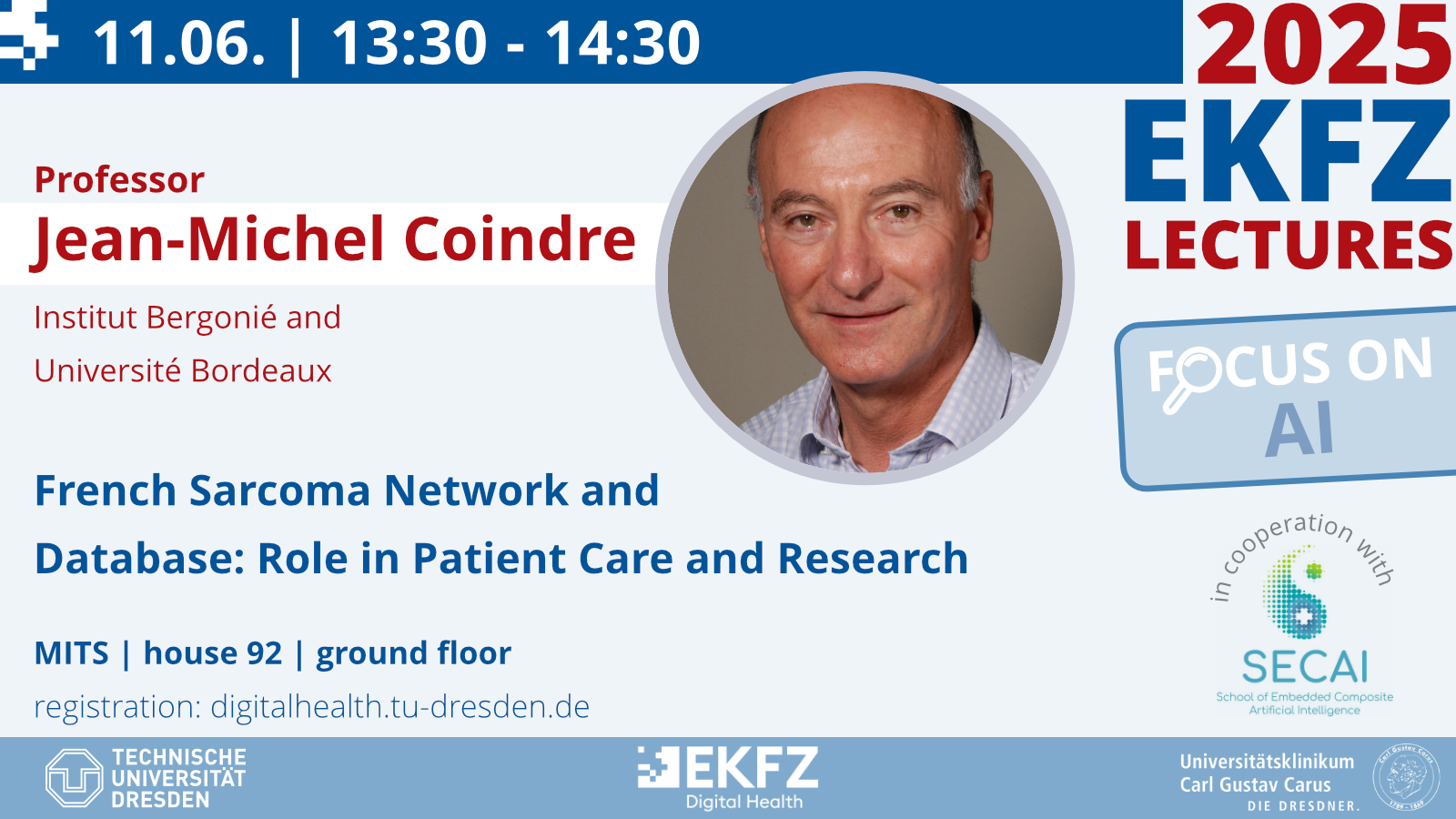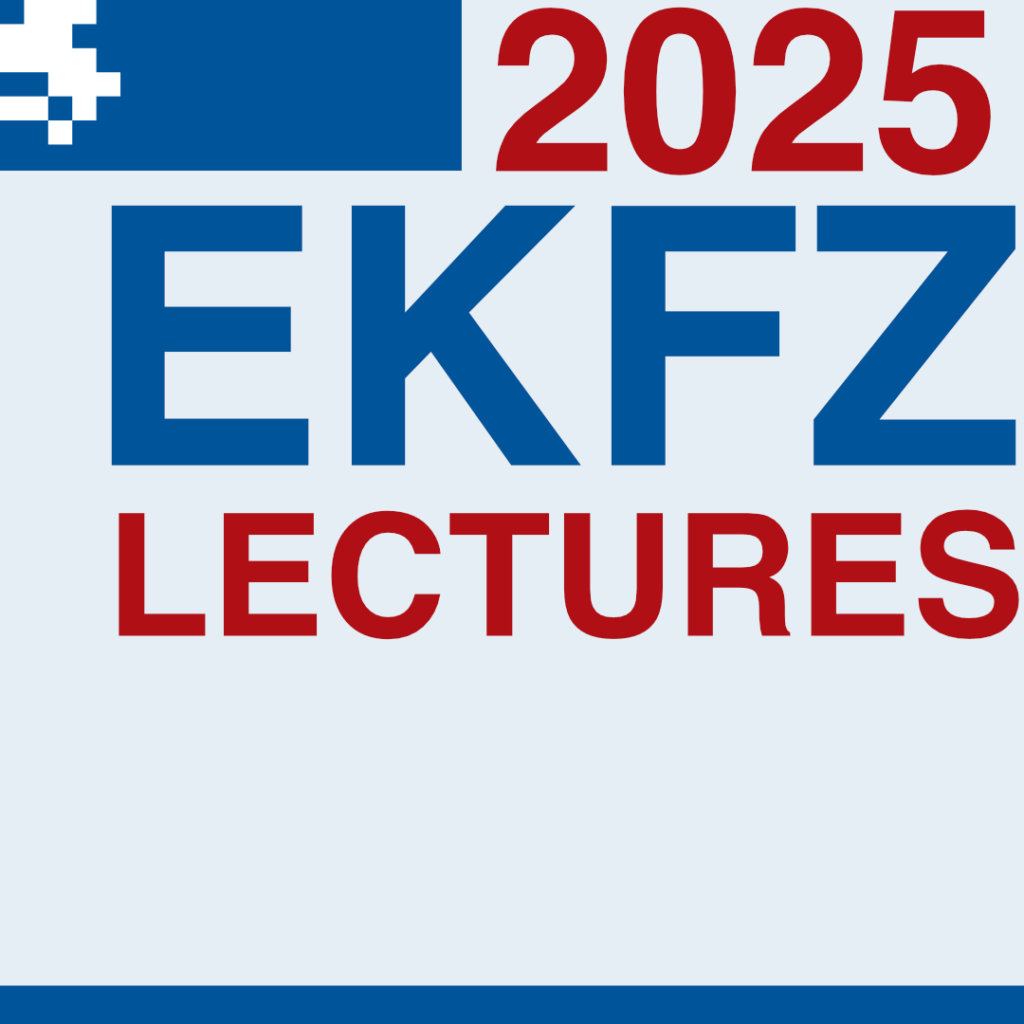Speaker invited by Prof. Jakob N. Kather

Prof. Jean-Michel Coindre | Institut Bergonié and University Bordeaux
French Sarcoma Network and Database: Role in Patient Care and Research
Sarcomas are rare tumors with a complex classification. Core needle biopsy has become the standard for initial diagnosis, and molecular testing is often essential for definitive classification. In 2010, we established a national pathology network to systematically review all new cases of sarcomas, gastrointestinal stromal tumors (GIST), and desmoid tumors across France.
This network, known as RRePS (Réseau de Relecture en Pathologie des Sarcomes: https://rreps.sarcomabcb.org/), comprises three national and nineteen regional centers. Molecular testing is routinely performed for all suspected cases involving specific genetic alterations, and a minimum dataset is collected for each new case.
Between 2010 and 2024, the network reviewed 81,400 tumors, including 41,682 sarcomas, 9,923 GISTs, 4,309 desmoid tumors, 17,467 mesenchymal tumors of intermediate malignancy, as well as 1,857 malignant non-mesenchymal tumors (primarily carcinomas and melanomas), and 6,160 benign lesions initially misdiagnosed as sarcoma, GIST, desmoid tumor, or intermediate malignancy.
Of all registered cases, 59% originated from laboratories outside the network. Among these, 36% were second-opinion consultations and 23% systematic reviews, with major diagnostic discrepancies identified in 32% and 12% of cases, respectively.
Over time, the proportion of cases initially sampled in network centers increased from 37% to 50%, and the use of core needle biopsies rose from 18% to 42%. The average time to final diagnosis through the network has steadily decreased from 2010 to 2024. However, the rate of diagnostic discrepancies has remained stable.
We estimate that the network currently reviews approximately 90% of all new sarcoma cases in France. Immunohistochemistry was used in 96% of cases and molecular testing in 54%. Overall, molecular analyses were performed in 50% of all reviewed cases.
We have demonstrated that systematic molecular analysis is essential for diagnosing around 10% of well-differentiated/dedifferentiated liposarcomas and translocation-associated sarcomas. This approach has shown clear clinical value. Furthermore, centralized histological review has proven to be cost-effective.
The RRePS database is integrated into a broader data warehouse alongside the NetSarc database (which records all multidisciplinary team meetings within the network) and Conticabase (which collects clinical, pathological, molecular, therapeutic, and follow-up data of patients treated in network centers).
This data warehouse (https://sarcomabcb.org/) is a crucial resource for network coordination and research. It currently holds data on more than 145,000 patients and includes multiple tools to support national and international collaborative studies. Notably, it supports the development of an immune atlas of sarcomas and deep learning studies on whole slide images.



